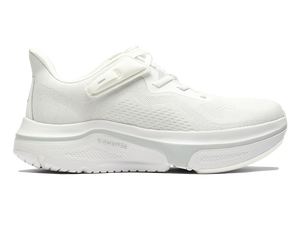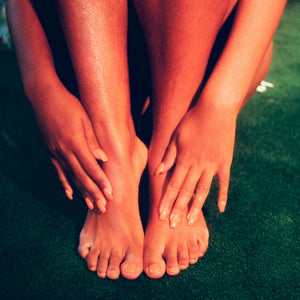Cart
Your cart is empty
Looks like you haven’t added anything yet, browse new arrivals below!
Continue ShoppingEngineered for Ultimate Neuropathy Support and Comfort
Nerve pain, numbness, and sensitivity can make every step feel unpredictable. Cadense adaptive footwear is designed to support balance, cushioning, and comfort for individuals living with neuropathy—helping restore confidence and ease in your daily movement.

Medically reviewed by
Dr. Obianuju Helen Okoye, MD


Neuropathy refers to nerve damage that leads to numbness, tingling, burning pain, or weakness—most commonly in the feet and hands. It is often associated with diabetes but can also result from autoimmune conditions, nutritional deficiencies, infections, toxins, genetic disorders, or medication side effects.
These changes can make everyday activities uncomfortable or unstable. The right footwear plays a vital role in helping manage symptoms by providing cushioning, stability, and protection for sensitive or numb feet.
Neuropathy influences gait in several ways:
For these reasons, neuropathy-friendly shoes must combine cushioning, stability, and protective construction.


Footwear is one of the most important tools for managing neuropathy symptoms. The right shoes can help:
For many individuals, comfortable, supportive footwear can significantly improve daily mobility.
When choosing supportive shoes for neuropathy, look for:
Cadense shoes integrate these features to create supportive, comfortable footwear designed for neuropathy-related challenges.


Discover adaptive footwear engineered for cushioning, balance, and comfort—supporting safer, more confident mobility for neuropathy-sensitive feet.
Symptoms can worsen with prolonged standing, tight or unsupportive shoes, extreme temperatures, poor circulation, alcohol use, or elevated blood sugar levels. Supportive, cushioned footwear can help reduce irritation and nerve sensitivity.
No. Walking barefoot increases the risk of cuts, burns, and injuries you may not feel due to numbness. Supportive, protective footwear is recommended even at home.
Managing underlying conditions, improving circulation, doing therapeutic exercises, and wearing supportive, cushioned footwear are among the most effective ways to ease symptoms.
Soft, non-restrictive socks can help keep feet warm and comfortable. Avoid tight or compressive socks that may restrict circulation.
Some causes (like vitamin deficiencies or certain medication-related neuropathies) may improve with treatment. Chronic neuropathies, such as diabetic neuropathy, are typically managed rather than reversed.
Yes. Many people live long, full lives with neuropathy when underlying conditions are well-managed and proper foot protection and care are used consistently.
It may help reduce swelling or discomfort for some individuals. Because neuropathy varies by cause, it’s best to follow medical guidance tailored to your condition.
Nighttime symptoms may intensify due to reduced distractions, temperature changes, pressure on sensitive nerves, or circulation differences when lying down.
Looks like you haven’t added anything yet, browse new arrivals below!
Continue Shopping